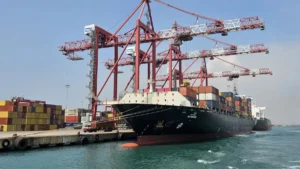Foreign direct equity investments in India have experienced a significant downturn, recording a 24% decline to $20.5 billion during the first half of the financial year 2023-24. This notable decrease follows a larger trend of diminishing FDI inflows over the past year.
Global Economic Uncertainties Impact FDI
The contraction in FDI inflows is observed against the backdrop of uncertainties and challenges in the global economy. While the government has not officially attributed the decline to specific factors, the prevailing global economic conditions are likely contributors.
Year-on-Year Decline:
Comparing the data to the previous financial year, foreign direct equity investments had already decreased by over a fifth, amounting to $46.03 billion. The trend persisted, with investments continuing to fall from April to August of the current financial year.
September Shows Signs of Improvement:
However, September brought a glimmer of hope as FDI investments saw an upswing, rising to $4.08 billion compared to $2.97 billion in the same month the previous year.
Total FDI Contraction:
The broader perspective of total FDI, including equity capital of unincorporated bodies, reinvested earnings, and other capital, reveals a 15.5% contraction to $32.9 billion during the period under review, according to data from the Department for Promotion of Industry and Internal Trade (DPIIT).
Country-wise Analysis:
During the first half of the financial year 2023-24, FDI equity inflows declined from major countries such as Singapore, Mauritius, the United States, the United Kingdom, and the United Arab Emirates. Notably, investments from the Cayman Islands and Cyprus witnessed a significant fall.
- Decrease in Investments: Investments from the Cayman Islands and Cyprus dropped to $145 million and $35 million, respectively, compared to $582 million and $764 million in the year-ago period.
-
Increase in Investments: In contrast, inflows increased from the Netherlands, Japan, and Germany.
Top Investing Countries:
Singapore emerged as the leading investor with $5.22 billion in FDI during April-September. Other top investing countries included Mauritius, Japan, the US, the Netherlands, the UAE, the UK, Cyprus, the Cayman Islands, and Germany.
Sector-wise Impact:
Different sectors experienced varied impacts, with contractions in computer software and hardware, trading, services, telecommunications, automobiles, pharmaceuticals, and chemicals. However, there was growth in inflows for construction (infrastructure) activities, construction development, and the metallurgical industry.




 Forex Reserves of India Hit Record High ...
Forex Reserves of India Hit Record High ...
 India Revises Base Year of Merchandise T...
India Revises Base Year of Merchandise T...
 India’s Core Sector Growth Slows to 4% i...
India’s Core Sector Growth Slows to 4% i...








